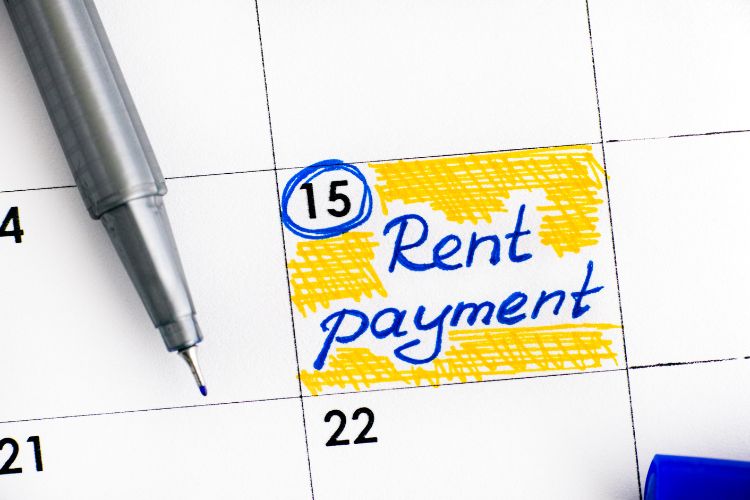As a property owner in Queensland, Australia, understanding how property managers handle the financial aspects of your rental property is crucial.
Property managers play a vital role in ensuring that owners receive their rental income in a timely and transparent manner. This begs the question, how do property managers pay owners?
In this post, we will explore the various ways property managers pay owners in Queensland while adhering to the relevant laws and regulations.
Rental Payments and Cycles

In Queensland, property managers are responsible for collecting rent from tenants on behalf of the property owner. The rental payment cycle typically follows a monthly or fortnightly schedule, as stipulated in the rental agreement.
Property managers are required to deposit the collected rent into a trust account, which is a separate account from the property manager’s personal or business funds.
Trust Accounts and Disbursements
The trust account, which is regulated by the Office of Fair Trading in Queensland, serves as a safeguard for both the property owner and prospective tenants.
Professional property managers are legally obligated to maintain accurate records of all financial transactions within the trust account, including rent received, expenses paid, and any other relevant fees or charges.
At the end of each rental payment cycle, the manager will disburse the investment property owner’s rental income to them. This disbursement process typically involves the following steps:
- Rental Income Received: The property manager deposits the rent collected from the tenant into the trust account.
- Deductions and Expenses: The property manager deducts any agreed-upon management fees, as well as any necessary expenses, such as maintenance, repairs, or utility bills, from the rental income.
- Owner’s Net Rental Income: The remaining balance, after deductions, is the owner’s net rental income.
- Payment to the Owner: The property manager then transfers the owner’s net rental income from the trust account to the owner’s nominated bank account.
Property managers in Queensland offer a variety of payment methods to transfer rental income to owners. These may include electronic funds transfer (EFT) into the owner’s nominated bank account, direct deposit, or the issuance of a physical cheque.
The timing of these disbursements can vary, especially if the property manager is managing multiple properties that have the same owner, but it is common practise for property managers in Queensland to pay owners on a monthly or fortnightly basis, depending on the rental payment cycle.
Transparency and Reporting
To ensure transparency and accountability, property managers in Queensland are required to provide regular financial statements to the property owner.
These statements typically include the following information:
- Rental Income Received: The total rent collected from the tenant during the reporting period.
- Deductions and Expenses: A detailed breakdown of all deductions, such as management fees, maintenance costs, and any other relevant expenses.
- Net Rental Income: The final amount owed to the property owner after all deductions have been made.
- Trust Account Statements: A copy of the trust account statement, which demonstrates the complete financial transactions during the reporting period.
Property owners in Queensland have the right to request additional information or clarification from the property manager at any time, ensuring transparency and accountability in the financial management of the rental property.
Taxes and Reporting Requirements

In addition to the regular rental income disbursements, property managers in Queensland are also responsible for managing the tax obligations related to the rental property. This includes:
- Rental Income Reporting: Property managers must report the total rental income received on behalf of the property owner to the Australian Taxation Office (ATO) as part of the owner’s annual tax return.
- Expense Deductions: The property manager can assist the owner in claiming legitimate deductions for expenses incurred in the maintenance and operation of the rental property, such as repairs, insurance, and property management fees.
- Goods and Services Tax (GST): If the property owner is registered for GST, the property manager must ensure that the appropriate GST amounts are calculated, collected, and remitted to the ATO.
Property owners should consult with a qualified tax professional to ensure that they are fully compliant with all relevant tax laws and regulations in Queensland.
Dispute Resolution and Complaints
In the event of a dispute or issue related to the payment of rental income, property owners in Queensland have several avenues for resolution.
They can:
- Communicate with the Property Manager: Reach out to the property manager directly to discuss any concerns or discrepancies in the financial reporting or disbursements.
- Escalate to the Office of Fair Trading: If the issue cannot be resolved directly with the property manager, property owners can file a complaint with the Office of Fair Trading, which oversees the regulation of property management companies in Queensland.
- Seek Legal Advice: For more complex or unresolved disputes, property owners may choose to seek legal advice from a qualified real estate lawyer or the Residential Tenancies Authority in Queensland.
By understanding the processes and regulations surrounding how property managers pay owners in Queensland, property owners can ensure that their rental income is managed efficiently and transparently, in compliance with the relevant laws and regulations.
Wrapping Up
In conclusion, property managers in Queensland, Australia play a crucial role in the financial management of rental properties on behalf of the owners.
From the collection of rent to the disbursement of rental income, property managers must adhere to strict trust account requirements, provide transparent financial reporting, and manage tax obligations.
By understanding these processes, property owners in Queensland can have confidence in the way their rental income is handled and ensure that their best interests are protected.

